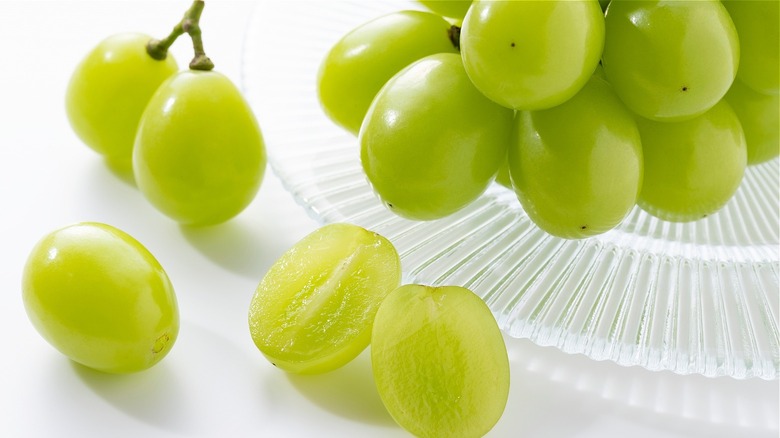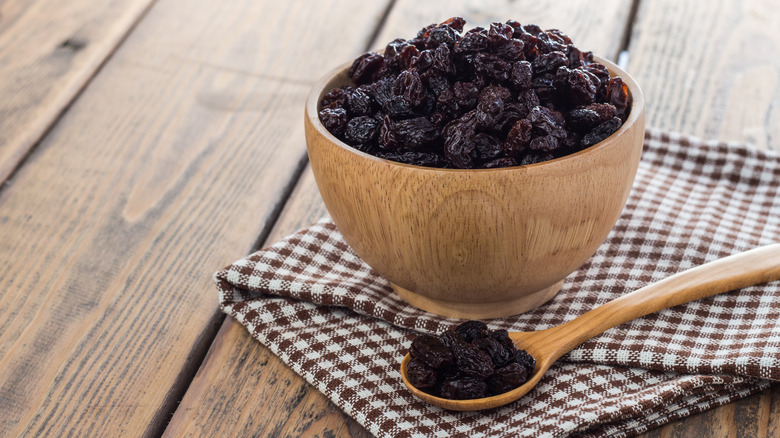The Reason Why Grapes Cost So Much More Than Raisins
Produce prices can vary for the same two items depending on how they're packaged, among other factors. For example, you could buy a whole fruit for one price, but if you buy the same amount of that fruit in a cut-up and packaged form, the price is usually higher.
This is also illustrated by the difference in cost between grapes and raisins. When you compare grapes and raisins by weight, raisins typically cost more, but when you equate the quantity in each package, you get more raisins for less money per ounce. At the time of writing, a 2.25 lb bag of black seedless grapes costs 14 cents an ounce at Walmart. Also at Walmart, a 1.25 lb container of Sun-Maid California Sun-Dried Raisins costs 21.2 cents an ounce.
Now for the quantity factor. A 2.25 lb bag contains roughly 180 grapes. A 20 oz container of raisins includes about 1,200 dehydrated grapes. Emphasis on the word "dehydrated." Remember, grapes are primarily composed of water — 82%, to be more specific — so when the water is removed, it leaves more room. For more context, it takes 4 pounds of grapes to make just 1 pound of raisins. Grapes cost more than raisins based on quantity per package because of how they're stored. Grapes are more perishable and require refrigeration, whereas raisins have a much longer shelf life and don't require cold temperatures for storage.
Grapes are more expensive to store and ship than raisins
The United States Department of Agriculture defines perishable foods as items that become unsafe to consume — or spoil — if not held at refrigerated temperatures of 40 degrees Fahrenheit or below or frozen at temperatures below 0 degrees Fahrenheit. In addition to grapes, other perishable foods include milk, meat, strawberries, and fish. So, what's the deal with perishable food that makes it so expensive?
Because of how quickly these foods can spoil, they must be packaged and stored within the aforementioned temperature range at all times. This includes the time they are transported from farm to store or from one store to another. These requirements call for the use of specific, temperature-controlled packaging as well as vehicles outfitted with cooling systems. The added cost for these storage requirements is applied to the cost of the products.
On the other hand, raisins are non-perishable, which means they can be packaged in a cardboard box and similar containers and safely shipped from place to place without the need for refrigeration. They can also be stored at room temperature on a shelf or in a pantry without the same risk of spoilage.

